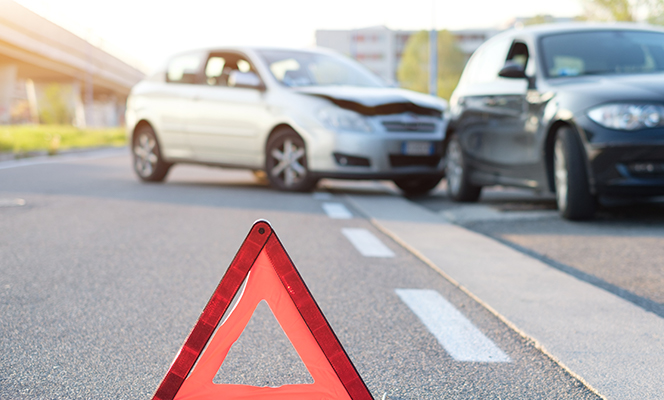Rear-end collisions are exactly what their name implies: collisions where one vehicle crashes into another’s rear. According to the National Highway Traffic Safety Administration (NHTSA), close to one-third of recorded car accidents are rear-end collisions. Any time an individual is injured in a car accident, he or she may pursue compensation for his or her related damages through a personal injury claim.
What Causes Rear-End Collisions?
Rear-end collisions can result from a variety of issues, such as a vehicle malfunction or driver negligence. Driver negligence comes in many forms, such as:
- Distracted driving;
- Drunk driving;
- Aggressive driving; and
- Drowsy driving.
Specifically, a rear-end collision can happen when a driver is distracted by his or her cell phone and rams into a stopped vehicle at a traffic light or a stop sign. They can also happen when a driver stops suddenly, making it impossible for the vehicle behind him or her to safely come to a complete stop without crashing. Sometimes, rear-end collisions are neither driver’s fault; they can occur when ice on the roadway undermines vehicles tires’ grip on the asphalt or a brake failure causes a driver to lose control of his or her vehicle.
Injuries that Can Result from a Rear-End Collision
When you are involved in a rear-end collision, there are many different ways you can be injured. These include:
- Broken bones
- Soft tissue injuries
- Traumatic brain injuries
- Cuts
- Burns
- Spinal cord injuries.
According to the Insurance Institute for Highway Safety (IIHS), rear-end collisions caused 2 percent of traffic fatalities recorded in 2016. When a victim dies in a car accident, his or her loved ones may pursue monetary compensation for their damages related to the death through a wrongful death claim.
Pursuing Compensation for your Damages After a Rear-End Collision
Many people believe that in a rear-end collision, the driver who hits another vehicle’s rear is always at fault. This is not true. Although the driver in this position is often the negligent party, the driver whose vehicle is struck can also be at fault. For example, if he or she comes to a sudden, unexpected stop on the highway and creates a scenario where it is basically impossible for the following driver to avoid a collision, he or she may be at fault. When you are injured in a rear-end collision, you may file a personal injury claim to pursue compensation for the following damages:
- Your medical expenses;
- Your lost wages; and
- Your pain and suffering damages.
Work with an Experienced Jackson Car Accident Attorney
When you are suffering from an injury you sustained in a rear-end collision caused by another party’s negligence, you have the right to pursue monetary compensation for your related damages through a personal injury claim. To learn more and start working on your claim, schedule your initial legal consultation with experienced car accident lawyer, Derek L. Hall, PC today.


